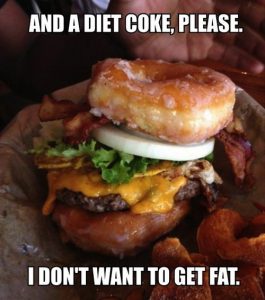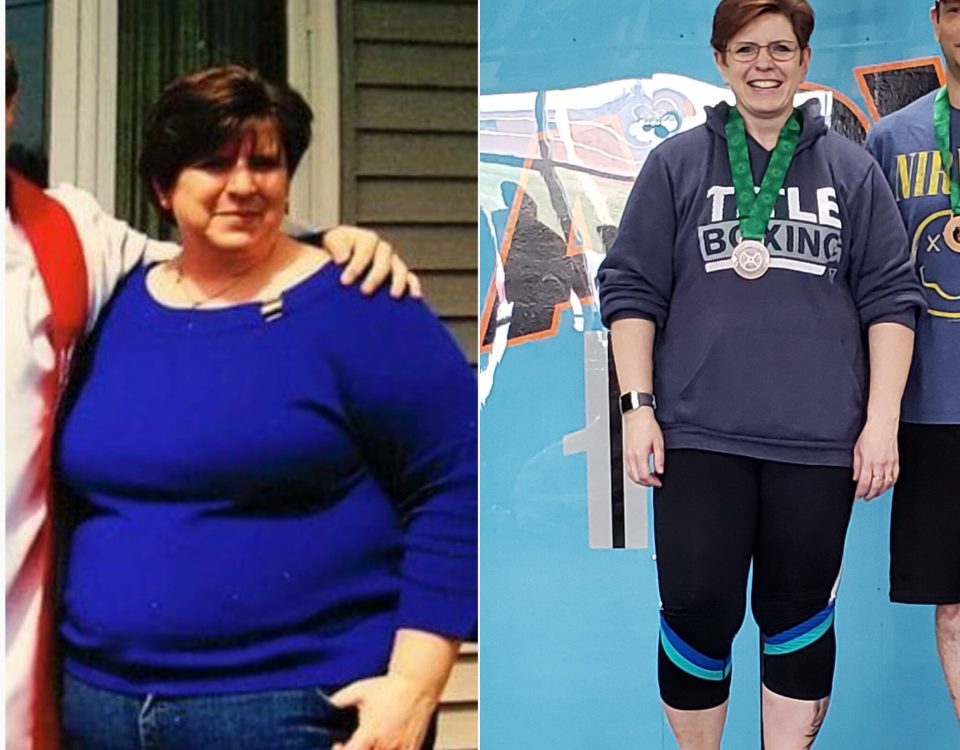Stop Counting How Many Calories You Burn

I love exercise. Seriously, I’d train hard every single day if I could. That hour in the gym is often the most relaxing part of my day.
My relationship with exercise isn’t unique; a lot of people truly enjoy doing it. After a few weeks in my coaching program, practically all my clients report looking forward going to the gym.
While this feeling isn’t unique, it’s not exactly common either. Plenty of people dread exercise and going to the gym, but they do, mostly because they want to lose weight.
We’re constantly made to believe that if we want to lose weight, we need to exercise, we need so many minutes of activity per day, and we need to be in the gym “x” number of times per week sweating out the calories.
Exercise has a ton of health benefits, there’s no denying that. But is weight loss really one of them? And does counting how many calories you burn actually do more harm than good?
Let’s take a look…
Exercise does not facilitate weight loss
Every January 1st, gyms are flooded with new memberships because if you want to lose weight, you need to exercise…right?
If exercise were the answer to weight loss, we’d all be a lot thinner. But judging by increasing obesity rates, it’s not. Here’s why:
- Measuring expenditure is complex
Most machines at the gym ask your to input your height and weight, and by the end of your 30-minute sweat-sesh you’ve burned 600 calories.
Errrrrmagahd, McDonalds here I come!

But a lot more goes into measuring energy expenditure than height and weight. Things like body composition, gender, age, exercise selection and intensity all factor in as well. And that’s not even counting the hormonal environment going on inside each individual. So two people of the same height and weight, running on the treadmill for 20 minutes could burn calories at two very different rates.
Not to mention that the more often you perform the same exercise at the same intensity, the fewer calories you burn. As the body gets more efficient at an activity, it expends less energy while doing it.
- Exercise is a poor use of your time
Time is the one thing we can’t get back. And when it comes to weight loss, exercise alone is an inefficient use of your time.
A 2010 study by the International Journal of Obesity found that without any diet changes, it takes approximately 35 hours of cardio to burn one pound of body fat. That’s 35 hours you could spend doing something productive or spending with your family.
Instead of spending hours upon hours exercising without any dietary changes, you can simply just eat a few hundred calories less every day and save yourself a lot of time.
- Exercise encourages a reward mentality
While the concept of whether or not exercises actually makes us hungrier is up for debate, it does appear that exercise can actually make us eat more; particularly among those who track how many calories they burn.
When you think about exercise simply in terms of “calories”, you’re essentially placing the same value on exercise that you do on food. Subconsciously, this opens the door to the belief that you can reward yourself for exercising with food.
The biggest problem is, according to a study published in the New England Journal of Medicine, people are horrible at estimating calories. The study found that when asked to self-report their energy intake and expenditures, the participants underestimated how many calories they were eating AND overestimated how many calories they were burning; both by almost 50%.
This means that not only do many people eat more calories than they think, they also don’t burn as many either.
Exercise is part of the plan; just not the whole plan
So as you can see, exercise alone is a poor method for inducing weight loss, and the act of counting how many calories you burn through activity may actually be detrimental to your efforts.
So what should you do? Here are a few tips:
- Use your diet as your primary method for weight loss. Ideally you’d be tracking your calories or macros, as this has proven time and time again to be an effective way to make progress. But at the very least you want to build your diet around lots of lean proteins and veggies, with sprinklings of good fats, complex carbs, and a lot of water.
- Exercise for health and for fun. The best way to get the most out of exercise is to enjoy doing it. As we’ve already established, exercise alone is a poor plan of attack for weight loss, so that shouldn’t be your main reason for doing it. Exercise has a whole host of other benefits, such as increased cardiovascular health, bone and joint health, disease prevention, and treatment of depression, just to name a few. There are far better reasons to exercise than just for weight loss.
- When it does come to exercise, think intensity not duration. To get the most out of your time in the gym (and maximize your time out of it) focus on the intensity of your exercise sessions, not the duration. Activities like strength training and high-intensity intervals will provide much more bang for your buck than hour-long hamster wheel sessions on the treadmill.
- Know that yes you’re burning calories, but the amount doesn’t matter. As we established, accurately counting how many calories you burn through exercise is very difficult, so don’t even worry about it. Use your diet to create a calorie deficit, and your activity for overall health.
I want to emphasize that in no way do I think exercise, of any kind, is bad. Every single one of my clients perform multiple days of resistance training each week.
We just need to change our thinking on exercise. We need to stop counting how many calories we burn, and stop viewing it as the best vehicle for weight loss. Because it’s not, and viewing it as such only serves to hurt our weight loss efforts, not help them.
Focus on building a solid foundation with a good diet, while engaging in activity that you enjoy, and will benefit your health over the long term. If you do that, weight loss will come.



